Medical Student’s Questions Aim for the Heart
Abbad Sultan has a lot of questions.
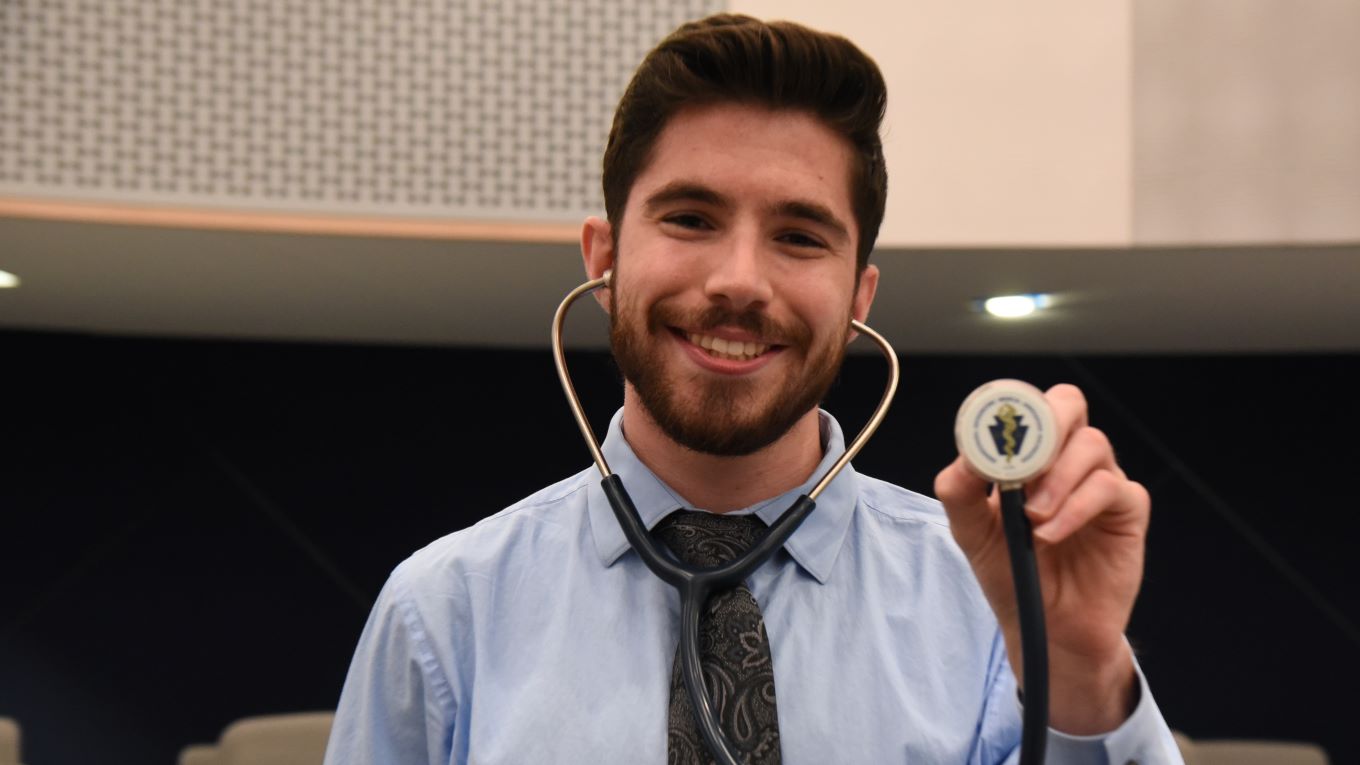
Build a better world for everyone.
At the Nasuti College of Osteopathic Medicine you will be a part of something bigger than yourself. Together we will fundamentally shape the way health care is delivered with innovative solutions that address and improve patient care and access to care for everyone.
Here at one of the nation's newest medical schools in the heart of Pittsburgh's medical hubs, you'll be part of the future of medicine built upon our legacy of serving others. The opening of Duquesne's medical school is an important leap forward for the region, and the nation, as we train the next generation of physicians and health professionals to practice in our underserved urban and rural communities.
You will be at the center of a paradigm shift in health equity with Duquesne's:
Applications for the 2026 class is open! Start your journey with Duquesne's DO program and join the next generation of physicians.
100% of Duquesne's Master's in Biomedical Sciences graduates who applied to the Nasuti
College of Medicine were accepted, like Jacob! Be a part of the next MBS class.
Undergraduate Nasuti College of Medicine Early Assurance Program Available
Our medical faculty and staff will walk alongside you to reach your bigger goals! Join our growing team of faculty and staff professionals dedicated to serving all
populations. Search keyword "Osteopathic" for open positions.Nasuti College of Medicine Team
Now Hiring Nasuti College of Medicine Faculty & Staff!
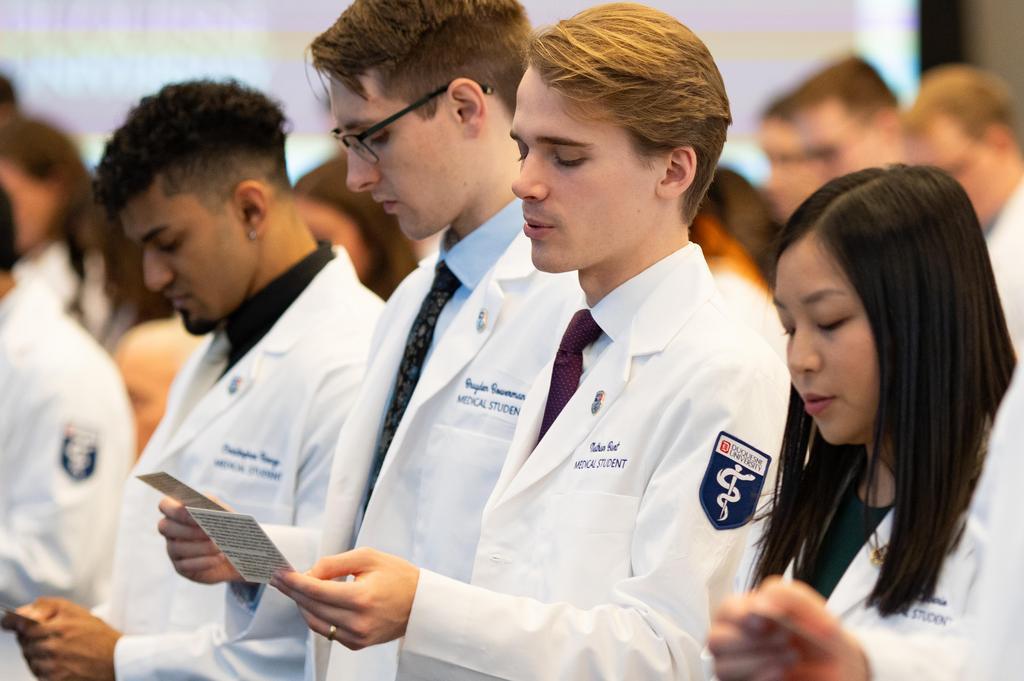
Improve the health equity of your community by becoming a physician with Duquesne’s Doctor of Osteopathic Medicine (DO) program that focuses on a culture of wellness and disease prevention for everyone.
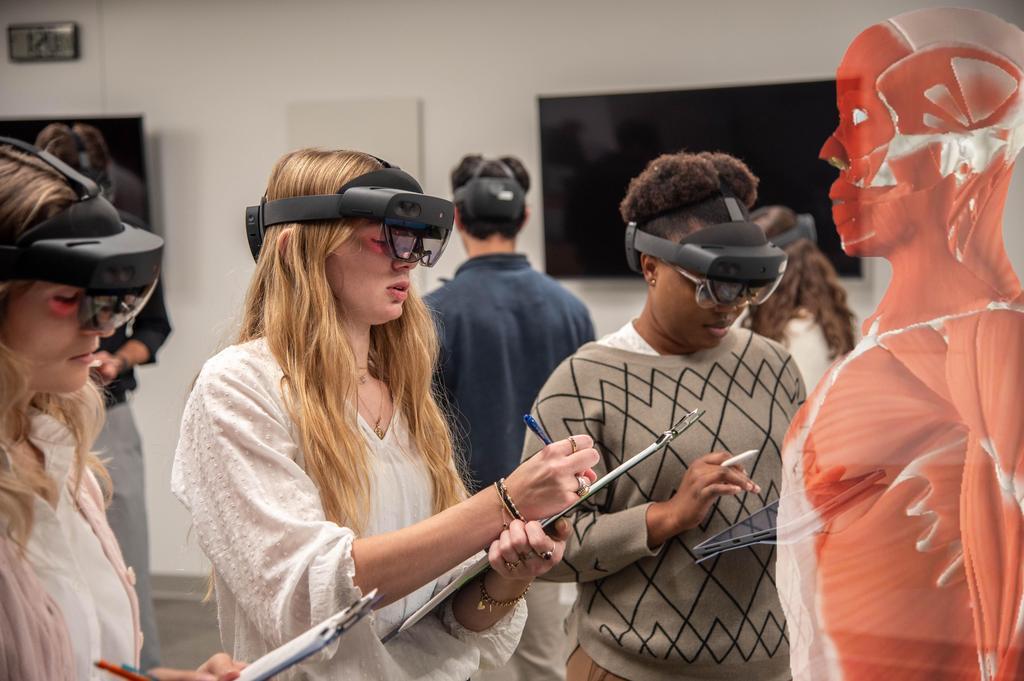
Be prepared to transform the world with Duquesne's Master's in Biomedical Sciences (MBS). Built to help you advance your career in medicine through a greater understanding of the structure and function of the human body, this master's program is the only one in the world using virtual anatomy technology!
Students from across campus will connect in meaningful, productive ways.New Medical School, Fresh Perspectives
You’ll be immersed in a range of academic and hands-on learning experiences. Research shows that health care professionals who understand and connect with their
patients’ communities provide better care and achieve stronger outcomes. We’re working to strengthen our medical community in meaningful ways, including: Welcoming future physicians who care deeply about people and want to make a positive difference in every community they serve. Bringing together faculty and staff with a wide range of perspectives and experiences that reflect the patients and families we’ll care for. Offering real-world learning opportunities, including a community engagement project focused on improving access to care and
promoting health for all. Collaborating across Duquesne University to create programs and experiences that help all students thrive. Hosting community health speaker series with the University’s Center for Integrative Health—open to healthcare professionals
and Duquesne faculty, staff and students.
From our founding, we have helped build a better Pittsburgh—and a better
world. Our students, faculty and alumni strengthen that tradition today.
As the next generation of physicians and health professionals, you will be training
in our new Nasuti College of Medicine building and facilities with the latest in technology.
Building a Better Community within Medicine
Duquesne's Social Impact
Building a World-Class Medical School from the Ground Up
Jim and Celeste Nasuti have earned a place in the history of Duquesne through their
remarkable support of the University’s most significant initiative in a century. The
Nasuti family has given a naming gift— one of the two largest gifts ever made to Duquesne—to
name the Nasuti College of Osteopathic Medicine of Duquesne University. The gift will
enable the medical school to serve generations of people through the works of future
Duquesne doctors.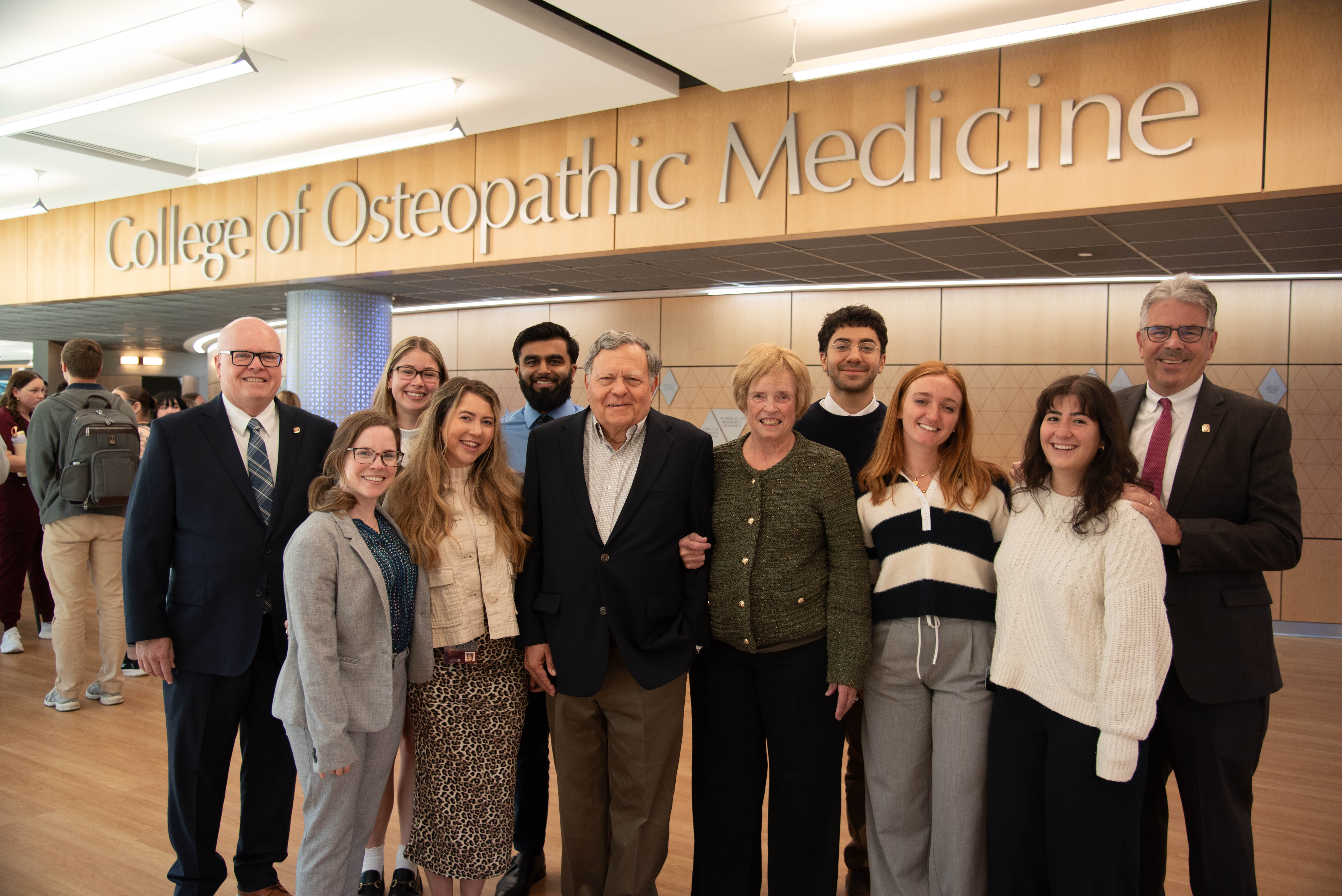
The Nasutis first toured the medical school during the spring of 2025 as part of a meeting with President Ken Gormley, Jim Miller, then-vice president of university advancement, and Dr. John Kauffman, dean of the medical school. The Nasutis admired the spaces and the technology and saw students who probably had little idea who they were as they studied. Soon, a portrait of them will hang in the building, another reminder that for all the technology and research, people remain at the heart of the practice and profession of medicine.
Jim Nasuti’s early aspirations to medicine have come somewhat full circle with a medical school named after him and his family. “So much has changed for Duquesne,” he said, recalling the smell of soot and the noise from local mills during his days on the Bluff. “It has such momentum now and has really grown its reputation.” That reputation and the excellence of the endeavor on Forbes Avenue drew their interest and, ultimately, commitment.
“The world needs doctors. Plus, Duquesne adds that important consideration of service
and helping people, going back to its founding purpose to help immigrants to Pittsburgh.”
The Mission of the Duquesne University Nasuti College of Medicine is to provide excellence in medical education. The College will train physicians who will serve God, in the Spiritan tradition, by caring for all people in all communities, including in underserved urban and rural communities of Western Pennsylvania, the nation, and the world, addressing healthcare disparities among these communities. The College will graduate physician leaders in all medical specialties with a focus on primary care.
The vision of the Duquesne University Nasuti College of Medicine is to create a culture of servant leaders who are dedicated to treating the whole person, mind, body and spirit.
L - Love and Mercy: Treating others as you would want to be treated, with empathy and compassion. Creating a culture of tolerance and non-judgementalism.
E - Ethics and Morality: Creating a culture committed to practicing medicine with the highest moral and ethical standards.
A - Advancement and Personal Development: Empowering faculty, staff, and students to develop lives of self-fulfillment through service.
D - Disparity and Social Justice: Creating a culture that promotes the treatment of everyone without disparity and seeks to address inequities in access to health care.
E - Excellence: Creating a culture where students, faculty, and staff can excel and reach their full potential both academically and professionally.
R - Responsibility to Profession and Community: Equipping and training the next generation of health care leaders in all medical specialties with a particular focus on primary care.
S - Servant Leadership: Creating a culture of service to God consistent with the historic Mission of Duquesne University.
Registration is now OPEN! Register here.Events
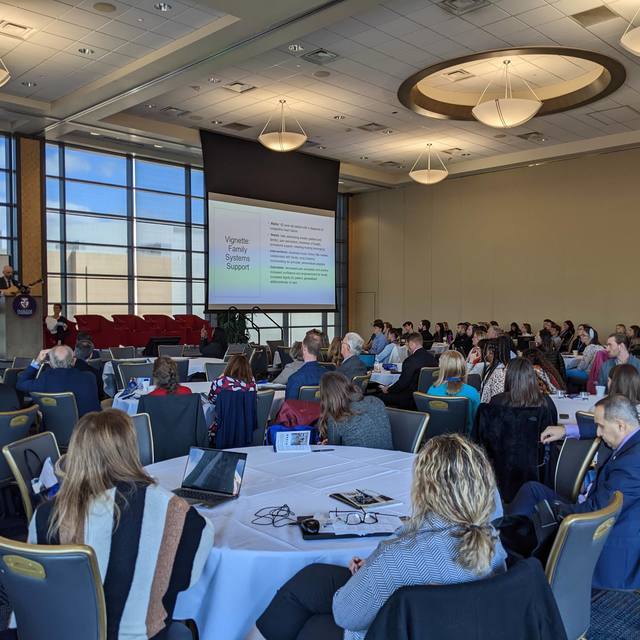
Inaugural 2026 Men’s Health and Infertility Conference
Join leading national and international experts in men’s health and fertility for a comprehensive conference exploring the latest advances in evaluating and managing common men’s health conditions and infertility through a restorative, root-cause approach. Thr
Abbad Sultan has a lot of questions.
Duquesne President Ken Gormley has announced that the University has appointed W. Thomas McGough, Jr., recently retired executive vice president and chief legal officer of UPMC, as a Distinguished Faculty Fellow in Law and Medicine.
Duquesne University President Ken Gormley has announced that Jim and Celeste Nasuti have made a transformational gift to Duquesne for its College of Osteopathic Medicine. The medical school will now be named the Nasuti College of Osteopathic Medicine, in recognition of the Nasuti family providing Duquesne one of the two largest philanthropic commitments in its history.